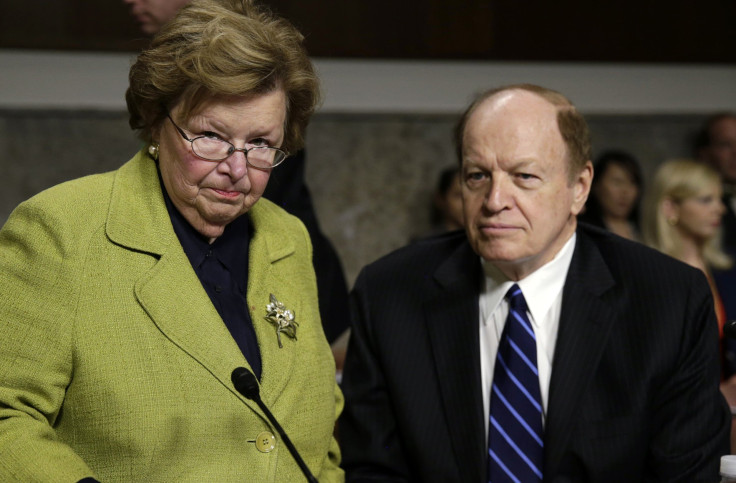Government Shutdown: Funding Bill Negotiations Continue As Time Runs Down

WASHINGTON -- Republican and Democratic leaders from both houses of Congress negotiated on a spending bill into the night Monday as the deadline loomed for funding the government. The next 24 hours are likely to determine if there's going to be a deal -- or a shutdown.
If Congress doesn’t pass a bill by Thursday night, the government could shut down Friday. But in hopes of preventing that, discussions are starting to simmer on passing a very short term continuing resolution (CR) that would keep government open for a couple more days to get the deal done.
Sen. Barbara Mikulski, D-Md., the chairwoman of the Senate Appropriations Committee, said she is waiting to see how much progress is made Monday night before declaring the need for a CR.
“I believe that we will not have a shutdown and I believe we will not have government on autopilot,” she said. “The exact time and hour, I’m not sure.”
The negotiations suggest leadership is trying to find a way to get Republicans and Democrats to sign on to the funding bill. A bipartisan approach is most likely to ensure it passes both chambers and is signed by the president.
“There are some other items that are being discussed between [House Speaker John] Boehner, [Senate Majority Leader Harry] Reid, [Senate Minority Leader Mitch] McConnell and [House Minority Leader Nancy] Pelosi,” Mikulski said. “When those are resolved, we’ll file the bill and be ready to go.”
Democrats made clear last week the bill would be untenable for them if it was filled with policy riders that conservatives are pushing -- such as rolling back some of President Barack Obama’s environmental regulations or undoing a District of Columbia vote to decriminalize marijuana.
Mikulski wouldn’t say what was holding up the process, but suggested it was more than just the policy riders.
“Everything is a sticking point until we can get it unstuck and filed,” she said.
There also remains a risk that taking a bipartisan approach and negotiating the bill with Democrats could mean House conservatives rebel. It wouldn't be the first time.
Congressional leadership appeared near a deal that would have averted the government shutdown in October 2013. But days before the deadline, under pressure from conservative House members, Boehner moved forward with legislation that stood no chance of passing the Senate.
The longer it takes to file the spending bill, the longer conservatives have to try to rally opposition. And they will make the case the measure is being forced upon them if they aren’t given time to read it.
The biggest test for Republicans will likely come Wednesday morning -- only two days before the deadline -- when GOP House members hold their weekly conference and give their views on the legislation. That's when a revolt could catch fire.
© Copyright IBTimes 2025. All rights reserved.






















